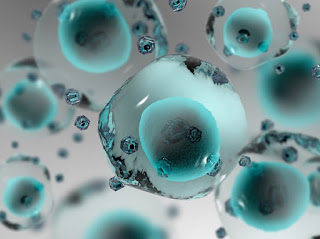Drug Delivery with Nanomedicine
Medication conveyance is
the strategy or procedure of managing a pharmaceutical compound to accomplish a
restorative impact in people or creatures. For the treatment of human maladies,
nasal and aspiratory courses of medication conveyance are increasing expanding
significance. These courses give promising contrasting options to parenteral
medication conveyance especially for peptide and protein therapeutics.
Nanoparticles made from biodegradable polymers demonstrate affirmation in
satisfying the stringent prerequisites put on these conveyance frameworks, for
example, capacity to be moved into an airborne, security against powers
produced amid aerosolization, biocompatibility, focusing of particular locales
or cell populaces in the lung, arrival of the medication in a foreordained way,
and debasement inside a satisfactory timeframe. To limit medicate corruption
and misfortune, to anticipate unsafe reactions and to build sedate
bioavailability and the division of the medication amassed in the required
zone, different medication conveyance and medication focusing on frameworks are
right now a work in progress. The maturing populace, the exclusive standards
for better personal satisfaction and the changing way of life of European
culture call for enhanced, more proficient and moderate human services. Nanotechnology
can offer amazing resolutions, when connected to medicinal difficulties like
tumor, diabetes, Parkinson's or Alzheimer's ailment, cardiovascular issues,
fiery or irresistible maladies. Specialists of the largest amount from
industry, look into focuses and the scholarly world assembled to set up the
present vision with respect to future research needs in Nanomedicine.
The
moderate advance in the treatment of serious ailments has prompted the
appropriation of a multidisciplinary way to deal with the focused-on conveyance
and arrival of medications, supported by nanoscience and nanotechnology. The
point is to better control medicate pharmacokinetics, pharmacodynamics,
non-particular danger, immunogenicity and biorecognition of frameworks in the
mission for enhanced viability. Medication conveyance and focusing on
frameworks being worked on intend to limit sedate corruption and misfortune,
anticipate unsafe reactions and increment the accessibility of the medication
at the sickness site. Focusing on components can likewise be either inactive or
dynamic. A case of uninvolved focusing on is the particular aggregation of
chemotherapeutic specialists in strong tumors because of the distinctions in
the vascularization of the tumor tissue contrasted and solid tissue. Dynamic
focusing on includes the synthetic 'brightening' of the surface of medication
transporters with atoms empowering them to be specifically appended to
unhealthy cells. The controlled arrival of medications is additionally
essential for restorative achievement. Controlled discharge can be maintained
or pulsatile. Managed (or constant) arrival of a medication includes polymers
that discharge the medication at a controlled rate, by dispersion out of the polymer
or by corruption of the polymer after some time. Pulsatile discharge is
regularly favored, as it intently imitates the path by which the body normally
creates hormones, for example, insulin. It is accomplished by utilizing
drug-conveying polymers that react to particular boosts (e.g. presentation to
light, changes in pH or temperature).
Drug Delivery Systems: -
Drug Carriers Liquid Crystals Conjugation of Biological Molecules and
Synthetic Polymers
Micelles Nanoparticles In-Situ Forming Implants
Liposomes Hydrogels Microelectromechanical
Systems (MEMS)
Dendrimers Molecularly
Imprinted Polymers Administration Routes




Comments
Post a Comment